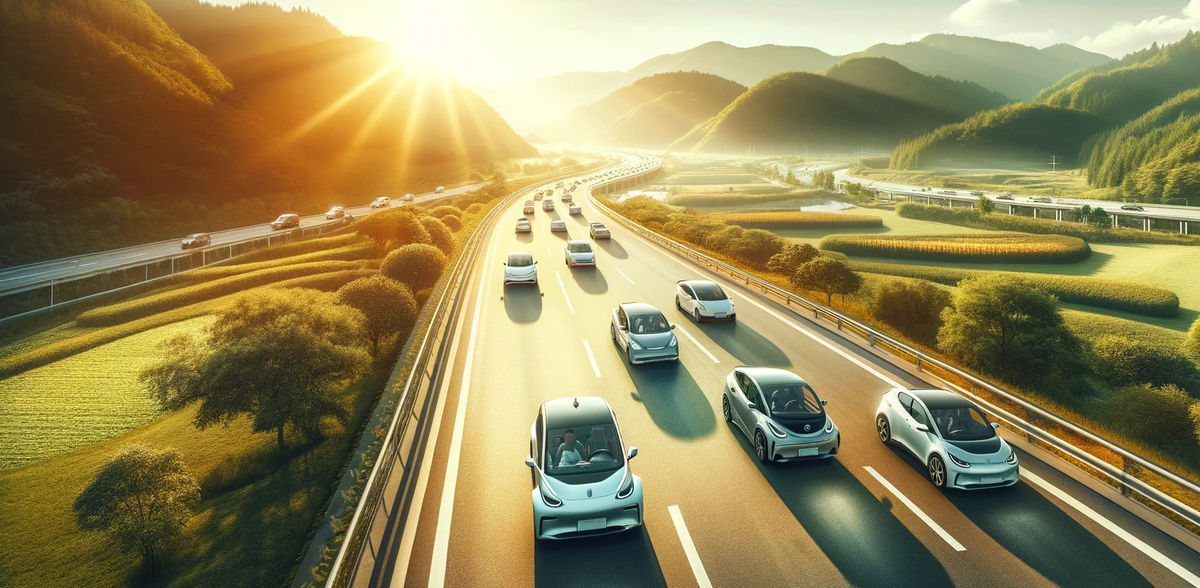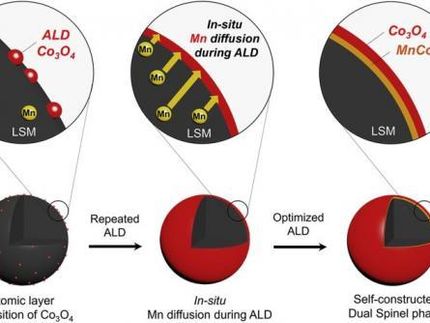E-Cars Will Soon be Cheaper than Combustion Engines
Batteries and fuel cells will dominate in the future – “e-fuels” will only play a very minor role
Advertisement
As early as 2025, an average midsize battery-electric vehicle will be cheaper than a comparable combustion engine vehicle. This is the conclusion of a study conducted by scientists at Forschungszentrum Jülich. The researchers developed a model which they used to assess the expected future costs in the transport sector and look at the resulting scenarios for achieving climate protection goals. According to the results, batteries and fuel cells will dominate in the future – “e-fuels” will only play a very minor role in road transport according to the researchers at the Institute of Energy and Climate Research (IEK-3).
From 2035, no new petrol or diesel cars may be registered in the EU. New cars that run on e-fuels are an exception to the ban on combustion engines. This was decided by the EU member states in March of this year. A general ban on combustion engines is therefore no longer an issue and the question arises as to what powertrains will prevail in the passenger car sector in the future.
“Our analyses show that electric mobility will become the cheaper alternative in the vast majority of cases in the next few years and that this trend will continue to grow in the long term. The reasons for this are the positive technical and economic development of electromobility and the simultaneous increase in the cost of fuel for combustion engines,” explains Detlef Stolten, head of the Jülich Institute for Techno-Economic Systems Analysis.
According to the calculations of the IEK-3 researchers, advantages in terms of maintenance costs and efficiency will mean that from the middle of this decade onwards, the battery-electric variant will have a lower total cost over its service life. In contrast, the manufacturing costs of electrified powertrains will still be higher than those of a conventional combustion engine car in 2025.
This trend applies not only to cars, but also to buses and tractor units. “Whether the battery or fuel cell is worthwhile depends on the respective application and how electricity and hydrogen costs develop. But one thing is clear: the combustion engine will be the most expensive option in all cases examined,” says Thomas Grube, head of the research group Transport Technologies and Future Mobility.
E-fuels for cars hardly economical without subsidies
Vehicles with combustion engines can be operated with zero emissions if they run on synthetic fuels. However, in terms of energy efficiency, and therefore operating costs, combustion engines perform poorly in comparison with e-cars if the fuel production of e-fuels is also taken into account.
“To power a vehicle with e-fuels, you need around five times more renewable electricity than if you store the electricity directly in a vehicle battery or use it to produce hydrogen,” explains Thomas Grube. In such an overall analysis, the battery car would require around 15 kWh of renewable electricity per 100 km driven in 2045, the fuel cell car 28 kWh, and the e-fuel combustion engine 72 kWh. In addition, local emissions, such as nitrogen oxides and particles, are still to be expected from combustion engines in the long term.
“The differences in efficiency will also be reflected in the costs. In addition, feasibility must also be considered, whereby the high energy demand required to produce e-fuels means that renewable energy would have to be expanded by a factor of 4 to 5 compared to battery cars,” explains Detlef Stolten.
Existing fleet reliant on synthetic fuels
According to the study, the consumption costs (excluding taxes and duties) of cars with batteries and fuel cells in 2045 will be comparable to today’s costs. In contrast, drivers who use e-fuels would have to deal with 60 to 90 percent higher costs – even though the existing supply infrastructure for liquid fuels is cheaper than that for electricity and hydrogen and global e-fuel production is assumed at windy and sunny locations.
Nevertheless, there will continue to be a demand for these synthetically produced fuels in the future, albeit at a much lower level. Even after 2035, existing cars with combustion engines and plug-in hybrid drives will still be on German roads. To align these vehicles with the goal of climate neutrality by 2045, they must increasingly be powered by e-fuels. However, the amount of e-fuels required will be much lower than the current demand for gasoline and diesel. This is because the foreseeable increase in the proportion of electric vehicles will lead to a decreased demand for traditional refinery products and powertrains with combustion engines – while the demand for electricity and hydrogen will grow strongly.
Development of the German passenger car fleet up to 2045
In addition to analysing vehicle costs, the IEK-3 researchers developed scenarios for the transport sector, including new registrations and vehicle fleets, in line with national greenhouse gas reduction targets. For these scenarios, the researchers developed a model that optimizes the costs of the entire system. The model input data include the results of the detailed vehicle cost analysis. In addition – based on mobility data – driving profiles are simulated to map user behaviour.
The results concerning the development of the vehicle fleet show a clear picture. In the passenger car sector, electromobility will prevail in terms of new registrations. The battery will dominate until the end of this decade. From the 2030s, fuel cells will also gain significant market shares due to reduced costs of the powertrain and hydrogen production. In the commercial vehicle sector, the market ramp-up of electrified powertrains will begin somewhat later. Nevertheless, according to the Jülich researchers at IEK-3, electromobility also has a future here – although the ratio between battery and fuel cell is likely to shift more towards the hydrogen-powered fuel cell for larger and heavier vehicles.
Original publication
Thomas Grube, Stefan Kraus, Julian Reul, Detlef Stolten; "Passenger car cost development through 2050"; Transportation Research Part D: Transport and Environment, Volume 101
Julian Reul, Thomas Grube, Detlef Stolten; "Urban transportation at an inflection point: An analysis of potential influencing factors"; Transportation Research Part D: Transport and Environment, Volume 92
Other news from the department science
Most read news
More news from our other portals
See the theme worlds for related content
Topic World Battery Technology
The topic world Battery Technology combines relevant knowledge in a unique way. Here you will find everything about suppliers and their products, webinars, white papers, catalogs and brochures.

Topic World Battery Technology
The topic world Battery Technology combines relevant knowledge in a unique way. Here you will find everything about suppliers and their products, webinars, white papers, catalogs and brochures.




































































